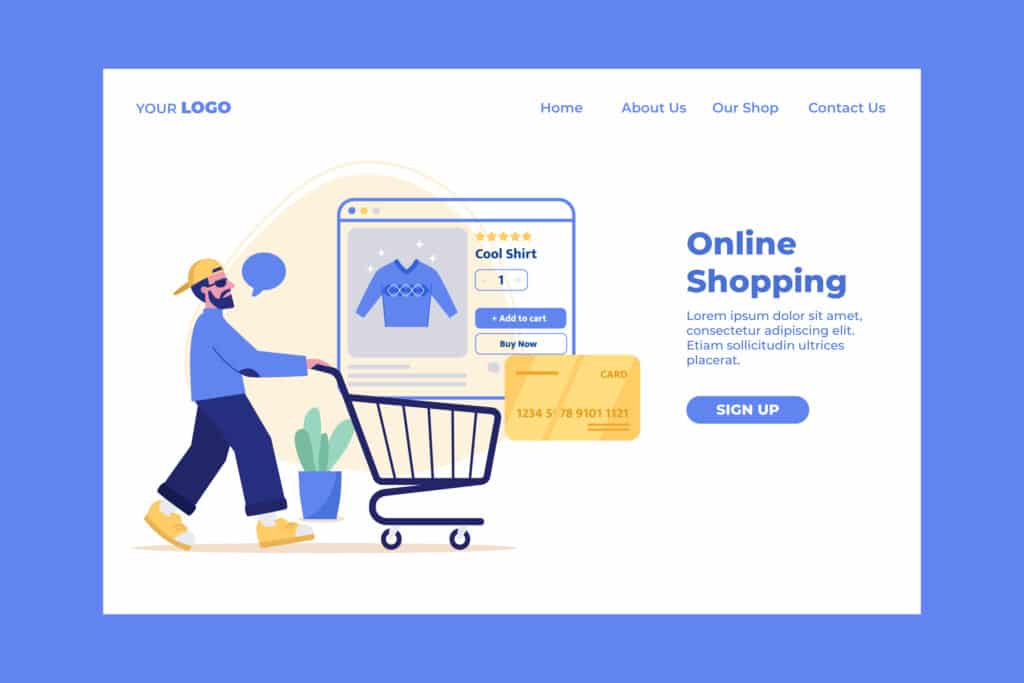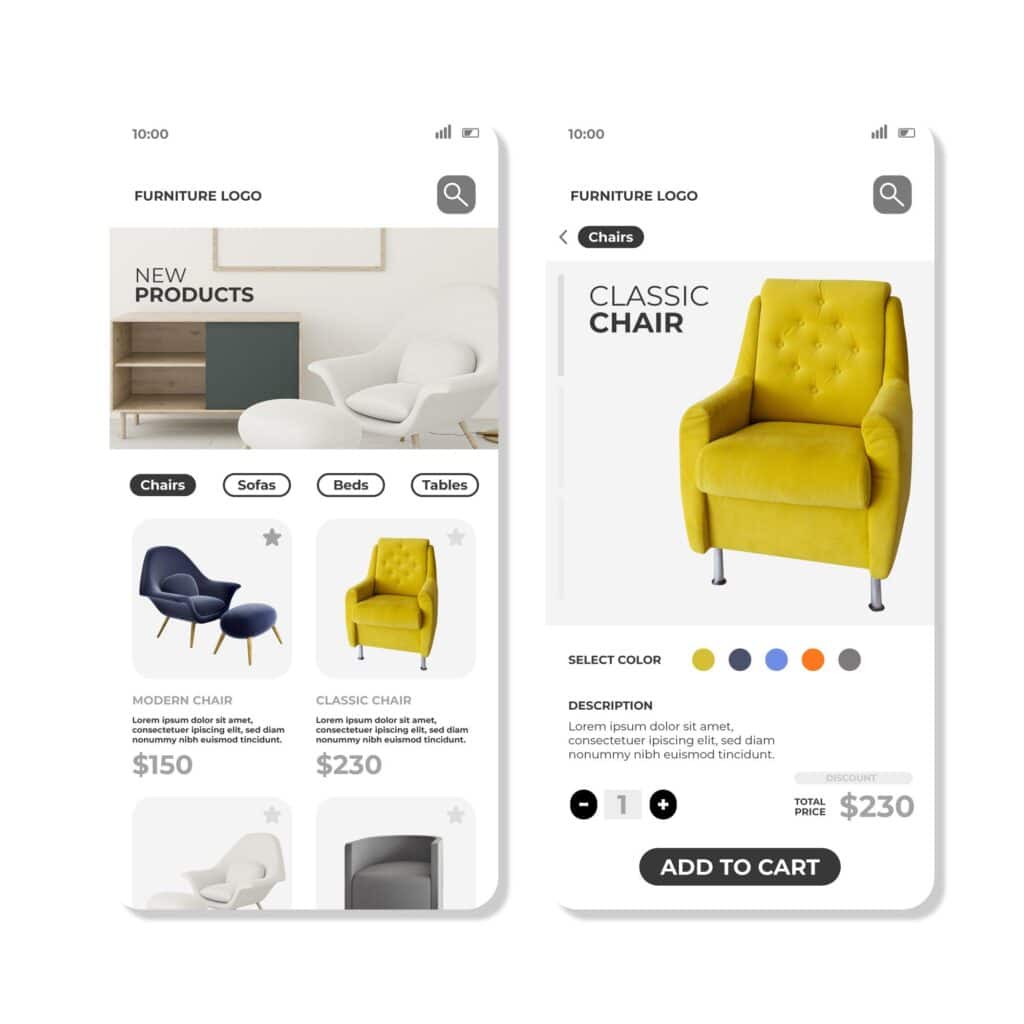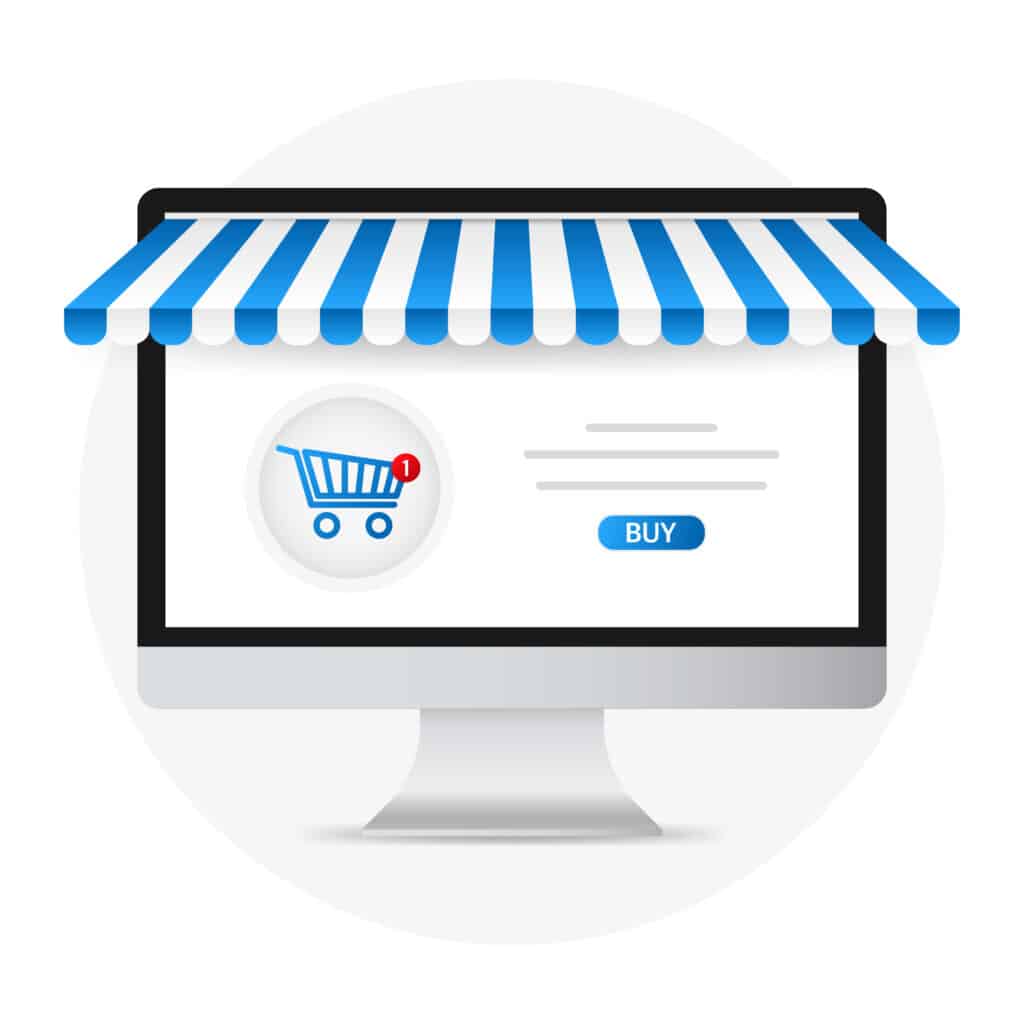In today’s increasingly digital world, having a strong online presence is crucial for any retailer looking to stay competitive. Building and maintaining an ecommerce website can be difficult, especially for those without technical skills or resources. However, DIY ecommerce website builders have made it easier for retailers to create professional-looking online stores. These platforms have user-friendly interfaces, pre-designed templates, and robust features that even novice business owners can use. In this article, we will reveal the secrets of successful businesses that use these tools to drive sales and achieve online success.
Why retailers choose DIY ecommerce website builders
Retailers choose to use DIY ecommerce website builders because they want full control over their online store. These platforms allow retailers to easily update and customize their websites without needing technical expertise or hiring a web developer. This control lets retailers quickly adapt to changes in their business and implement new strategies. DIY website builders are also cost-effective. Building a custom website from scratch can be expensive, especially for small businesses with limited budgets. By using a DIY website builder, retailers can save money on development costs and invest in other parts of their business like marketing or product development. Most DIY ecommerce platforms also offer affordable monthly plans that include hosting, security, and support services, making it a budget-friendly choice for retailers.

Lastly, DIY ecommerce website builders provide user-friendly interfaces that make managing an online store intuitive and straightforward. These platforms typically offer drag-and-drop functionality, pre-designed templates, and built-in features like inventory management and payment processing. Retailers can easily navigate through these interfaces without any coding knowledge or technical skills required. This not only saves time but also empowers retailers to take ownership of their online presence by being able to make changes at any time without relying on external help.
Benefits of using DIY ecommerce website builders
One of the major benefits of using DIY ecommerce website builders is the cost-effectiveness they offer. Website builders are a cheaper alternative to hiring a professional web developer. They offer affordable options for small businesses and startups. You can create a professional-looking website without spending too much money. There are many templates and customization options available to make your website unique.
Another advantage is the ease of use that DIY ecommerce website builders offer. These platforms are designed with user-friendly interfaces, allowing even those without technical skills to build their own online stores. With drag-and-drop functionality and pre-designed elements, you can easily add products, customize layouts, and manage your inventory with just a few clicks. This empowers business owners to have full control over their websites and make updates or changes whenever needed.
DIY ecommerce website builders also offer flexibility in terms of scalability. As your business grows, these platforms allow you to add new features or integrate third-party apps seamlessly. You can expand your product range, implement different payment gateways, or optimize your site for mobile responsiveness without requiring extensive technical knowledge or assistance. This adaptability ensures that your online store can evolve alongside your business’s changing needs.

In conclusion, DIY ecommerce website builders offer numerous benefits such as cost-effectiveness, ease of use, and scalability. They provide an accessible option for small businesses looking to establish an online presence without the need for extensive resources or expertise in web development.
Features to look for in a DIY ecommerce website builder
When it comes to choosing a DIY ecommerce website builder, there are several key features that top online retailers know to look for. One important feature is the ability to easily customize the design of your website. This allows you to create a unique and visually appealing online store that reflects your brand identity and engages customers.
Another essential feature is responsive design. More people are using mobile devices to shop online. It is important to have a website that works well on different screen sizes. A good DIY ecommerce website builder should have templates or tools to make your store mobile friendly.
Integration with popular payment gateways and shipping providers is also vital for an efficient ecommerce platform. Having seamless integration ensures smooth transactions and delivery processes for both you and your customers, enhancing their overall shopping experience.
Tracking sales, customer behavior, conversion rates, and other metrics can give you valuable insights into how your business is doing and help you make smart decisions for growth. When choosing a DIY ecommerce website builder, remember to look for customizable design options, templates or tools that work well on different devices, integration with popular payment and shipping services, and strong analytics capabilities. By using these features effectively, you can create an online store that not only looks good but also provides great user experiences and boosts sales.
Common challenges and how to overcome them
Retailers often struggle with limited customization options when using DIY ecommerce website builders. These builders are convenient and affordable for starting an online store, but they have few design templates and features. To overcome this challenge, choose a website builder that allows you to easily customize your online store’s design and layout. Look for options that let you change colors, fonts, and styles, and add or remove sections on your website.
Retailers often struggle with integrating third-party apps or services into their DIY ecommerce websites. These tools, such as payment gateways or inventory management systems, help improve online business operations. However, not all website builders make it easy to integrate these external services. To overcome this challenge, retailers need to research and find a website builder that supports the specific apps or services they require. It’s also important to choose a website builder that is easy to use and compatible with third-party tools to make integration seamless.

In conclusion, DIY ecommerce website builders are convenient and affordable, but they also have common challenges for retailers. To overcome these challenges, choose a customizable platform and make sure it can seamlessly integrate with external applications or services needed for your business operations.
Tips for getting the most out of a DIY ecommerce project
To get the most out of a DIY ecommerce website builder, think about your branding and design. Your website should show the personality and values of your brand. Use the customization options to make a visually appealing and cohesive website that connects with your target audience. Also, make sure your website is optimized for search engines. Learn how the built-in SEO features work and use them well. Research keywords that relate to your products or services and include them in your product descriptions, meta tags, headings, and URLs to improve visibility on search engine results pages.
Make sure all links work and regularly test on different devices and browsers to make sure the website works well. By doing this, you can use a DIY ecommerce website builder to create a unique online store that is better than others and provides a great experience for visitors.
Conclusion: The power of DIY ecommerce website builders for retailers
In conclusion, the power of DIY ecommerce website builders for retailers cannot be underestimated. These user-friendly platforms have revolutionized the way businesses can establish and manage their online presence. One of the most significant advantages is the cost-saving aspect. With traditional website development, hiring a professional designer and developer can be a costly endeavor. However, with DIY ecommerce website builders, small retailers can create and customize their online stores without breaking the bank.
DIY ecommerce website builders let retailers make changes themselves, saving time and responding quickly to customers and trends. These platforms also offer analytics and SEO tools to track performance and improve visibility online. DIY ecommerce website builders are a game-changer for retailers who want a strong online presence, low costs, and control over their websites. Smaller businesses can now compete with big competitors in the digital marketplace without relying on expensive web development agencies or generic templates.


